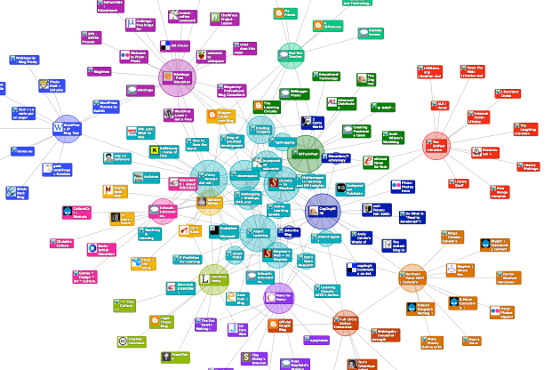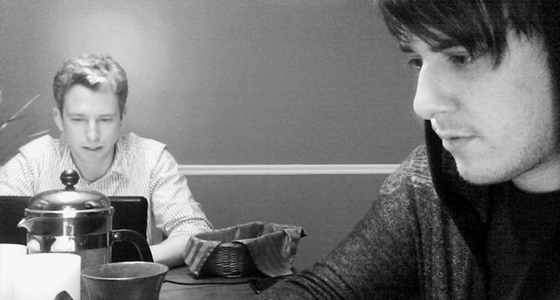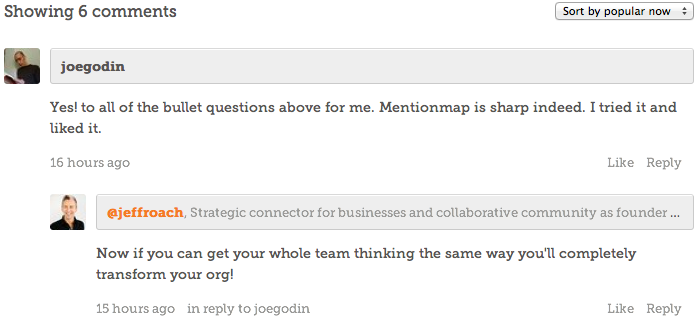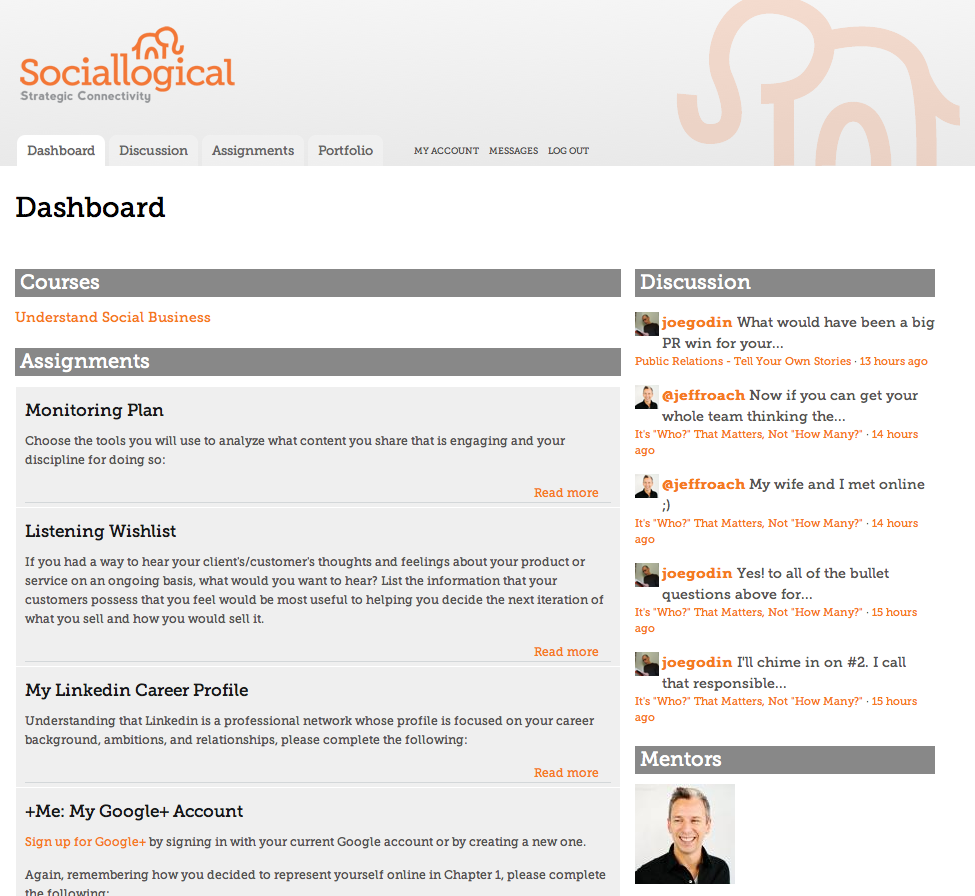 You’re standing in a room full of your peers and they’re waiting, expectant. You’re breathing faster than normal and your hands are sweaty and suddenly you forget why you’re standing there – until you remember. And you keep going.
You’re standing in a room full of your peers and they’re waiting, expectant. You’re breathing faster than normal and your hands are sweaty and suddenly you forget why you’re standing there – until you remember. And you keep going.
While social media anxiety may be less drastic in its form – it still exists and I’m about to explain why. The pressure’s off since we’re physically disconnected from our audience, but social expectations and a basic human need for acceptance still apply.
I spoke with four business professionals in the Saint John area about Facebook, Twitter, and how we relate.
Kathy Craig is one of them. Even as an experienced public speaker, she says social media is more intimidating to her than a crowd. I find that fascinating. And I see her point.
When we meet someone in person, our personalities are channelled through everything: body language, the way we speak, the time we spend listening versus interrupting. We don’t have this opportunity online.
“The tone is hard to judge on Twitter. Sometimes I think ‘oh that’s sarcastic,’ and then I reread it and I think, ‘maybe not.”
Craig sees herself as more of an observer on social networks. People’s intentions are often unclear, especially when we don’t know them.
“In public speaking, if you say something and offend someone you at least have the opportunity to explain yourself or apologize.”
But in social media it’s so easy dismiss our peers; all it takes is the click of a mouse.
Craig favours public speaking because we think through our message in advance, we know where we’re going, and we have the opportunity to finish.
“I still have a difficult time on social media; saying what I want to say. I’m really careful and it takes me a while. I know when people tweet they often just – out it comes. Not me, I have to really think about it.”
This notion resonated with another woman I spoke to. Anick Michel finds it difficult to fathom how many young people mindlessly engage in social media.
“With my generation, you’re always thinking of the potential hands it could end up in... I find sometimes to post a very simple line; you end up having to think a lot harder because you think ‘Am I going to sound stupid?’ You’re almost second guessing what you’re posting.”
Michel pointed out that when we give a presentation, our biggest fear is that we’re boring. This couldn’t be more truthful of social media. There’s an expectation to maintain a recent profile photo and the trend is in high-quality candids. We look for approval in others.
“When you do a posting you’re hoping that somebody will laugh or somebody will agree, or, you know, it’s almost like, a fear of the sound of crickets.”
We also experience a time constraint when engaging an audience through social media.
“If you’re giving a presentation you might have 5 minutes or an hour. You have so much time to grab their attention or you lose them,” Michel said.
In terms of the online attention span, the scale shrinks dramatically.
“You have so many words to grab their attention.”
Tracy Hanson is the project coordinator for Uptown Saint John. Tweeting and updating the company Facebook page are built-in to her daily routine.
“From what I see, a lot of people are catching on. Facebook has a large demographic but Twitter also, a lot of the businesses, especially uptown, are using Twitter a lot now.”
While Hanson recognizes the culture of social media fear around her, she’s not personally intimidated by it. She does her best not to offend people, both online and offline. She says it comes down to personality.
“You run into people that are pretty blatant; they have really strong opinions on things and they don’t mind expressing them. – And that’s fine. If it offends someone then that person doesn’t have to follow them.”
It’s difficult to say whether or not social media is essential to the success of new businesses. But Hanson can’t argue that engaging in the online platforms will only stimulate growth.
“Anything online scares some people still which is kind of crazy, but there’s also a huge opportunity that they’re missing too – a huge audience that’s free.”
Anne McShane is a local entrepreneur. She own and operates The Feel Good Store, and she’s also an avid tweeter. Even as someone who loves social media, she still has moments where she has to mentally check-in and ask herself, “Who do I want to be?”
She sees a carefree essence in the younger generations that deters the older ones from adapting.
“We use it as a tool and we’re somewhat comfortable, but your generation – it’s a voice. It’s literally a voice box. It might as well be plugged right into you. You’re so comfortable and transparent and – reality show – it actually is amazing to us.”
Kathy Craig says social media felt totally unnatural in the beginning. She later took the Sociallogical course, despite going in as a skeptic. She found herself surprised.
“I had no idea that it had become that pervasive in our society. For me, it was a real eye opener and it made me say to myself ‘okay Kathy, get on board here. You’re not too old.’”
In spite of all the challenges in adjusting to this new media, it pays off. McShane still has her ‘whoops’ moments, but continues to engage because it’s what she believes in.
“Social media is a godsend to be honest. Because what it replaced were the conversations you used to have in public meeting spaces all the time – back yard barbeques and different places that you would have these conversations. People don’t get together like that. A lot of people commute, there are different ways people interact. This replaced that.”
Have you ever felt stage fright posting comments or content online? Tell us about it in the comments below.
Only 25 tickets! » [Event] Sociallogical Uptown #Learnsocial Time Crunch awe.sm/5dQg2 #livelifeuptown
— Sociallogical (@soclogical) January 14, 2012
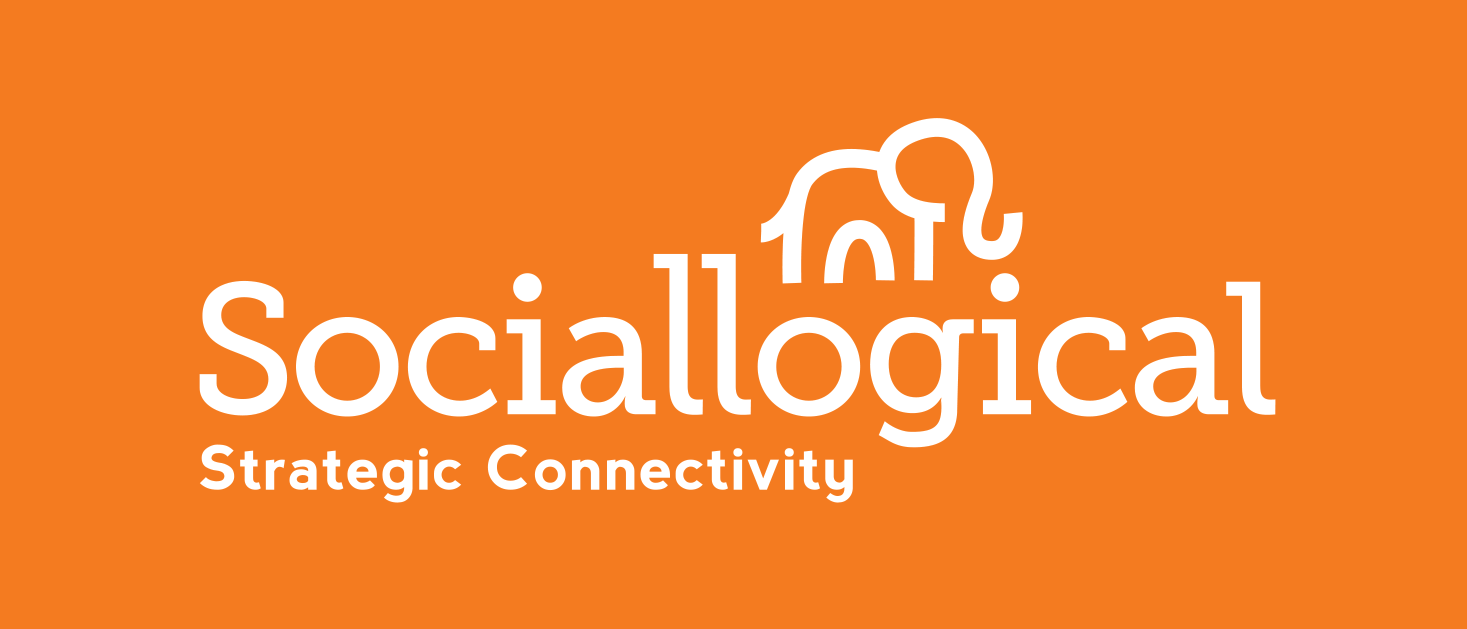

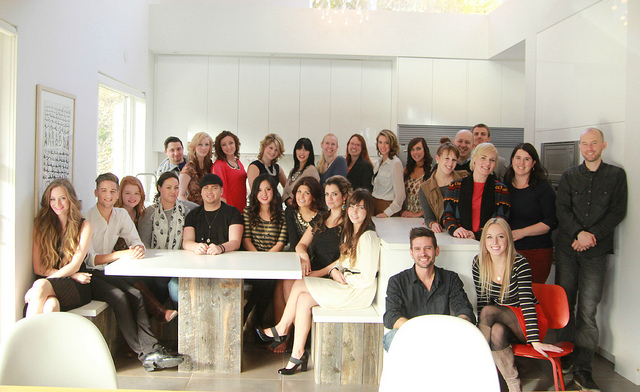 Imagine yourself building a house without a foundation. At a glance, it looks perfect. But beyond what meets the eye are structural flaws that will inevitably reveal themselves. Appearances will never substitute for lasting, grounded connection.
Imagine yourself building a house without a foundation. At a glance, it looks perfect. But beyond what meets the eye are structural flaws that will inevitably reveal themselves. Appearances will never substitute for lasting, grounded connection.

